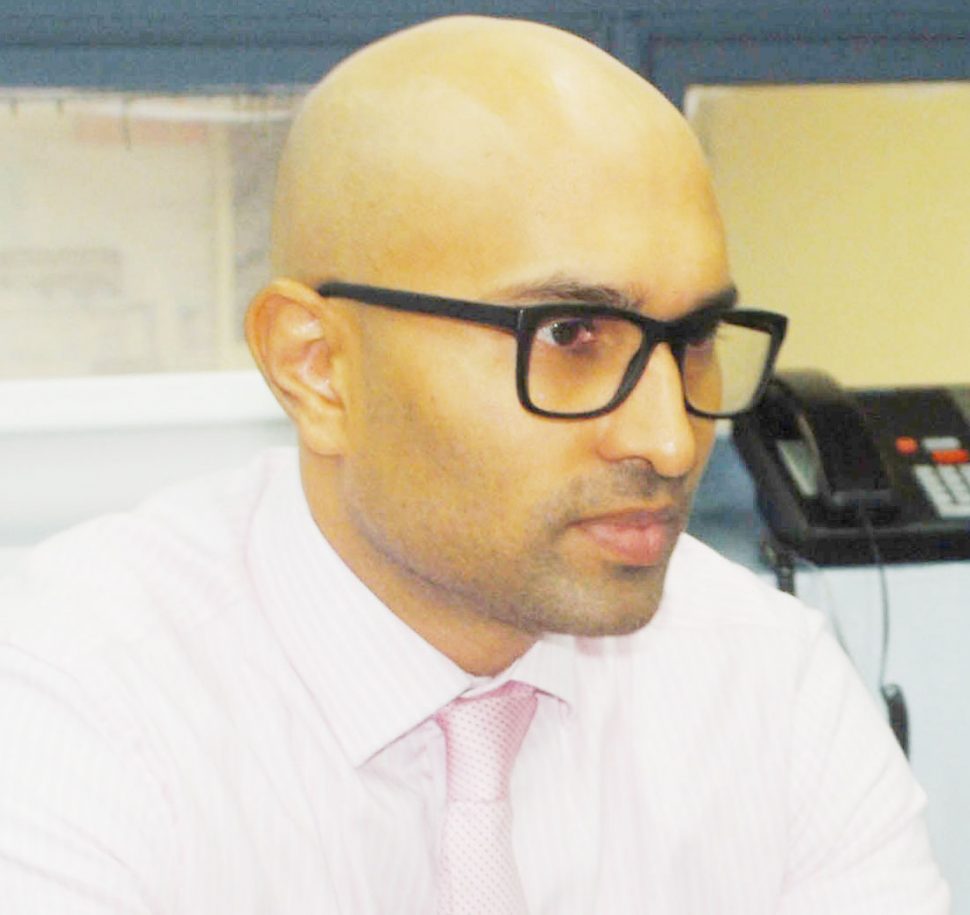President of the Georgetown Chamber of Commerce and Industry (GCCI) Nicholas Boyer has told the Stabroek Business that while he is excited that the Caribbean region sees Guyana as a growing market for products manufactured in the region he also wishes to see the country being regarded as a market in which a stronger regional manufacturing capability can be created.
In an interview with this newspaper on Thursday, Boyer, who assumed the elected leadership of the Chamber in March, declined to comment on the response by local coffee producer, Louis Holder, to the announcement that the Trinidad and Tobago distributor ANSA McAl was importing 50 new foreign manufactured products into Guyana though he said that the Chamber would continue to be a strong advocate for the promotion of locally manufactured goods in regional markets. In its March 12 issue the Stabroek Business reported on Holder’s views regarding what he felt was the unevenness of the playing field insofar as access to locally produced goods in regional markets was concerned.
Meanwhile, in a wide-ranging interview, the first since his elevation to the presidency of the Chamber, Boyer told Stabroek Business that the imminent emergence of an oil and gas sector in Guyana and its overwhelming significance for the Guyana economy demands that the local Business Support Organizations (BSO’s) ‘shift gears,’ assuming at least some of the responsibility for helping the business community navigate what will be, in effect, unchartered waters. Readying the Chamber for that responsibility is one of the foremost priorities on his agenda, Boyer added.
And according to Boyer, the GCCI has already been at the forefront of the push to raise public awareness regarding the significance of the advent of oil and gas but in the new President’s mind, the effort has to be taken a good deal further. In essence, he is adamant that the Chamber, while continuing to embrace its traditional responsibilities to the business community, has to shift gears. “We have to become a think-tank, a repository for information, guidance and informed advice on oil and gas for our members. We have to help prepare for the change.”
Already, the paradigms of the shift appear to have been worked out to an advanced level of clarity. The challenge as he sees it, reposes in changing the local mindset, persuading members that from a business perspective, oil and gas will bring with it fundamental change to the country’s business culture. In essence, Boyer believes that it would be unacceptable for the local business community to simply sit on the sidelines once the country’s oil recovery programme gathers momentum, but rather, that it must seek to be proactive if it was to benefit from the gains that will be available to Guyana.
In his tenure as Senior Vice President of the GCCI, Boyer spearheaded an initiative by the body to raise its profile in the local oil and gas ‘sector,’ by heading a team of local businessmen on a visit to Aberdeen, Scotland and afterwards, playing a high-profile role in the Chamber’s hosting earlier this year of a trade mission comprising private companies from the United Kingdom aimed at forging links with local, emerging companies in the oil and gas sector.
Meanwhile, Boyer told Stabroek Business that he envisioned that the Chamber’s institutional arrangements to execute its expanded mandate were likely to include significant reorganisation at the level of the Chamber itself to embrace both significant modernisation of the Secretariat and the recruitment of staff trained to meet what is likely to be a more demanding Chamber routine. “The reality is that oil and gas will change the culture of business in Guyana and the Chamber and its members must be prepared for this,” Boyer said.
According to the GCCI president, the Chamber had also set its sights on serving as an effective support organisation of the agro-processing sector. In this regard Boyer said that the Chamber was keen to have exchanges with agro-processing entities on matters relating to the standards and requirements necessary to secure international market acceptance as well as making membership available to the various sectors.










